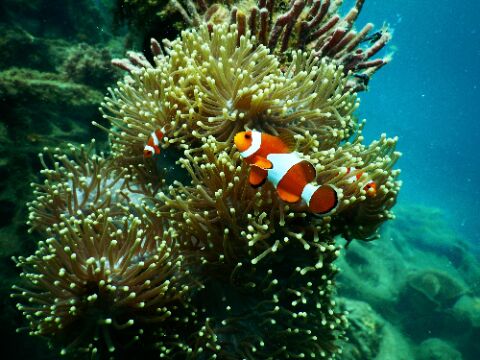Price to be paid

As climate change becomes an undeniable reality of daily life, the world is faced with the task of reinventing how it develops itself. The old ideas of developments now come with a tangible cost for the future. Current land-use patterns across the world are having a devastating effect on natural ecosystems. If humanity is to survive, everything from the way farming is done to the materials and techniques used to build houses will have to change. Although the world at large faces climate change, there are some places that are in more immediate danger than others. The Lakshadweep islands are sinking, its coral reefs gradually wasting away. In 2017, a Lakshadweep resident and researcher by the name of RM Hidayathulla published a paper noting the disappearance of one of the small islands in the Bangaram atoll in Lakshadweep. While cataloguing the flora and fauna of the Bangaram atoll as a doctoral student in 2011-12, Hidayathulla noted that there were only four islands in the lagoon, although the Survey of India showed five. The fifth, Parali, had simply disappeared into the waters as erosion had taken a toll. This was a small, uninhabited island but the rate of erosion is picking up across the Lakshadweep. It is being driven by factors that range from changing ocean currents and more frequent storm surges to the coral reefs no longer being able to provide as much protection against beach erosion as they are bleached away and eventually destroyed. All this is happening right now with cascading effects throughout the ecosystem. But things could get even worse from here on. This is what a group of scientists are trying to prevent. This week, the Lakshadweep Research Collective, alongside 60 other signatories, has written to President Ram Nath Kovind requesting his intervention to stop the proposed Lakshadweep Development Authority Regulation of 2021. The sweeping change proposed by this new regulation would essentially give the Lakshadweep authorities a huge amount of control in planning the development of areas identified as having "bad layout or obsolete development". It also enables the authorities to carve out zonation for land use and indicate areas for roads, airports, museums, etc. while also giving sweeping authority to 'punish' anyone caught 'obstructing' the development plans. The Lakshadweep Research Collective noted in its statement that "in enabling take-over of local land, we find that this draft regulation is not in consonance with existing laws, such as the Land Acquisition, Rehabilitation and Resettlement Act, 2013, the Biological Diversity Act 2002, The Environment (Protection) Act, 1986," Additionally, land and resource use patterns being changed under the law pose a serious threat to the island and its biodiversity. A tilt towards large-scale tourism for the islands may seem a good idea until one considers the sheer ecological cost of such an endeavour. Increases in reef fishing alone, which are sure to follow to support an expanded tourism industry, would be devastating to the coral reefs that are already under strain from climate change. But fine, development is necessary and tourism is a way for that development to happen. There is no doubt that the community in the islands would appreciate some development too. But, why must the community be kept outside of the discussion and the efforts to bring development to the islands? In an ecologically sensitive area like the Lakshadweep, development models cannot come top down, they must be made in collaboration with the local communities which have as yet proven their success in living with sustainable lifestyles. It is important to not just see the islands as a development opportunity to create an international tourism destination like the Maldives, but also as a responsibility. True, the development also envisions the construction of multiple sea walls for safety and prevention of erosion, but most experts say seawalls are no substitute for coral reefs and the many roles they play in helping sustain life on the islands. In conclusion, the scientists and citizens who wrote a letter to the President are not simply people who blindly oppose development. Rather, they are calling for the establishment of a committee of scientists, policymakers and local representatives who can help better plan how to shape a new model of development for the islands that will be more in keeping with its culture and its ecological needs. These diverse viewpoints and substantive arguments, once incorporated in the plan, will make it more complete — balancing both the developmental needs and ecological and community concerns. Unless these find reflection in the development plan, the process is bound to face hiccups. Moreover, holistic development of any region must spring from the heart of its society, taking in all the concerns of those living therein. Also, much is lost with every uncounted voice.



